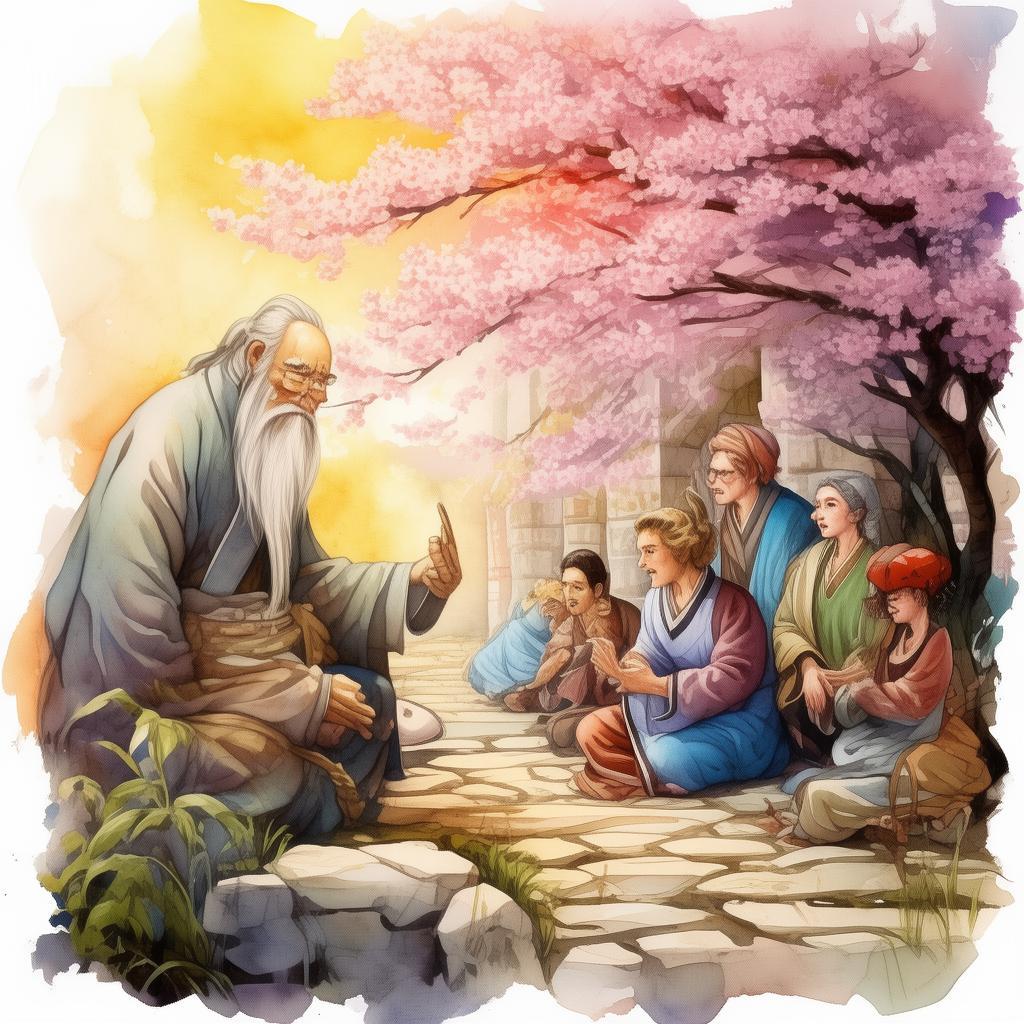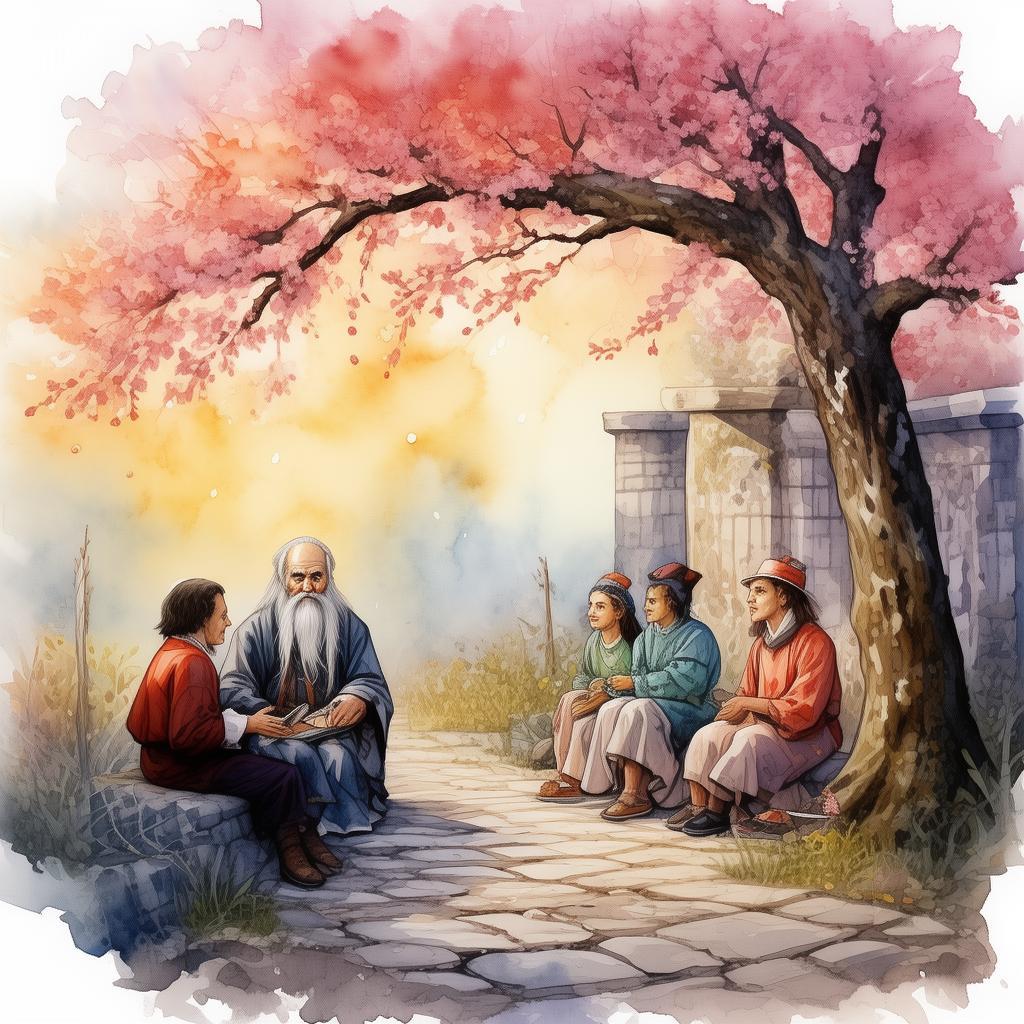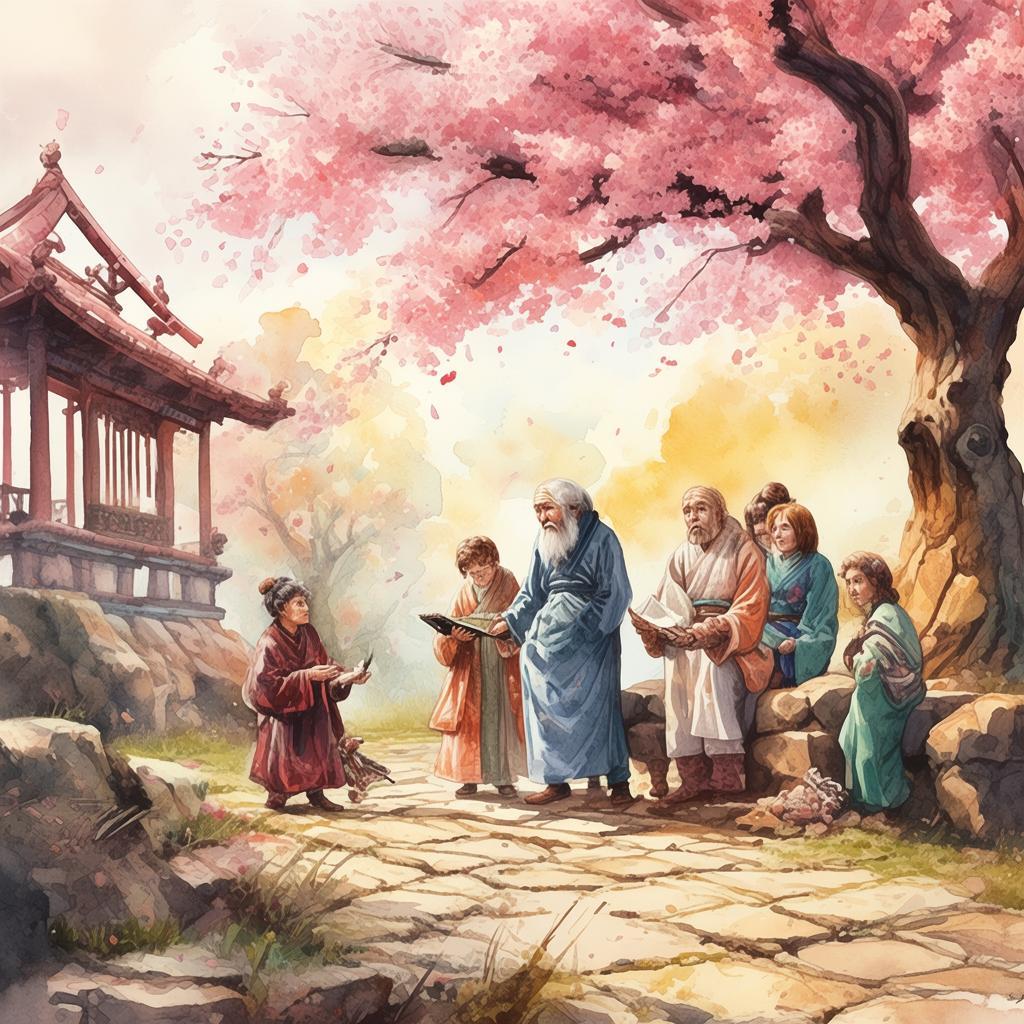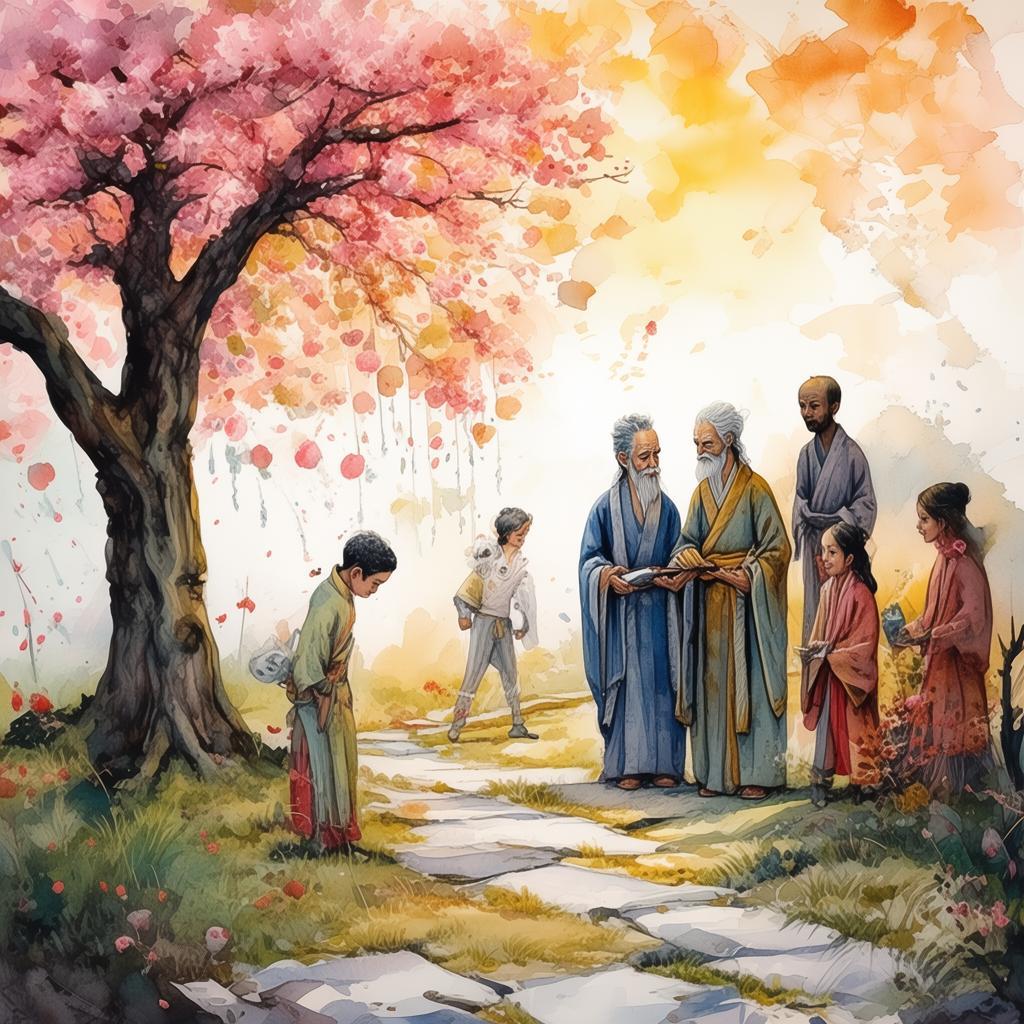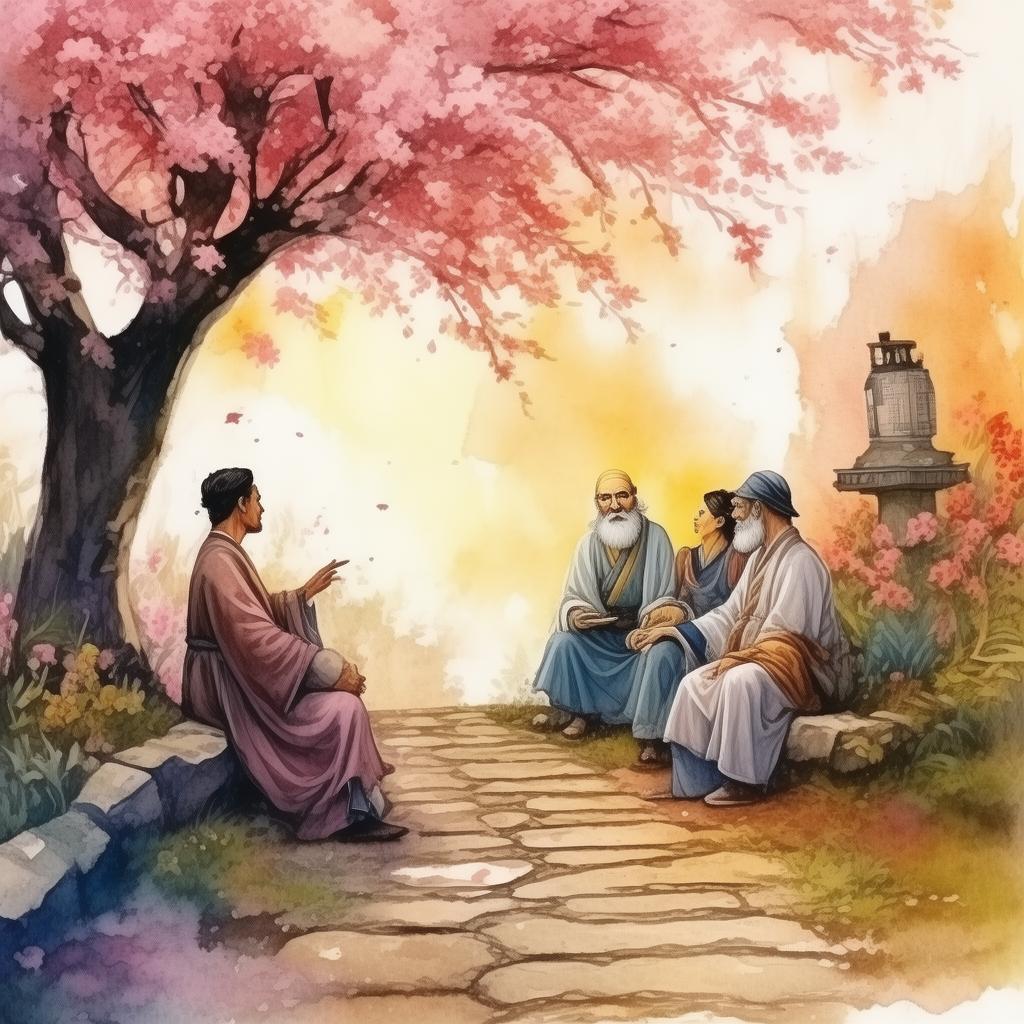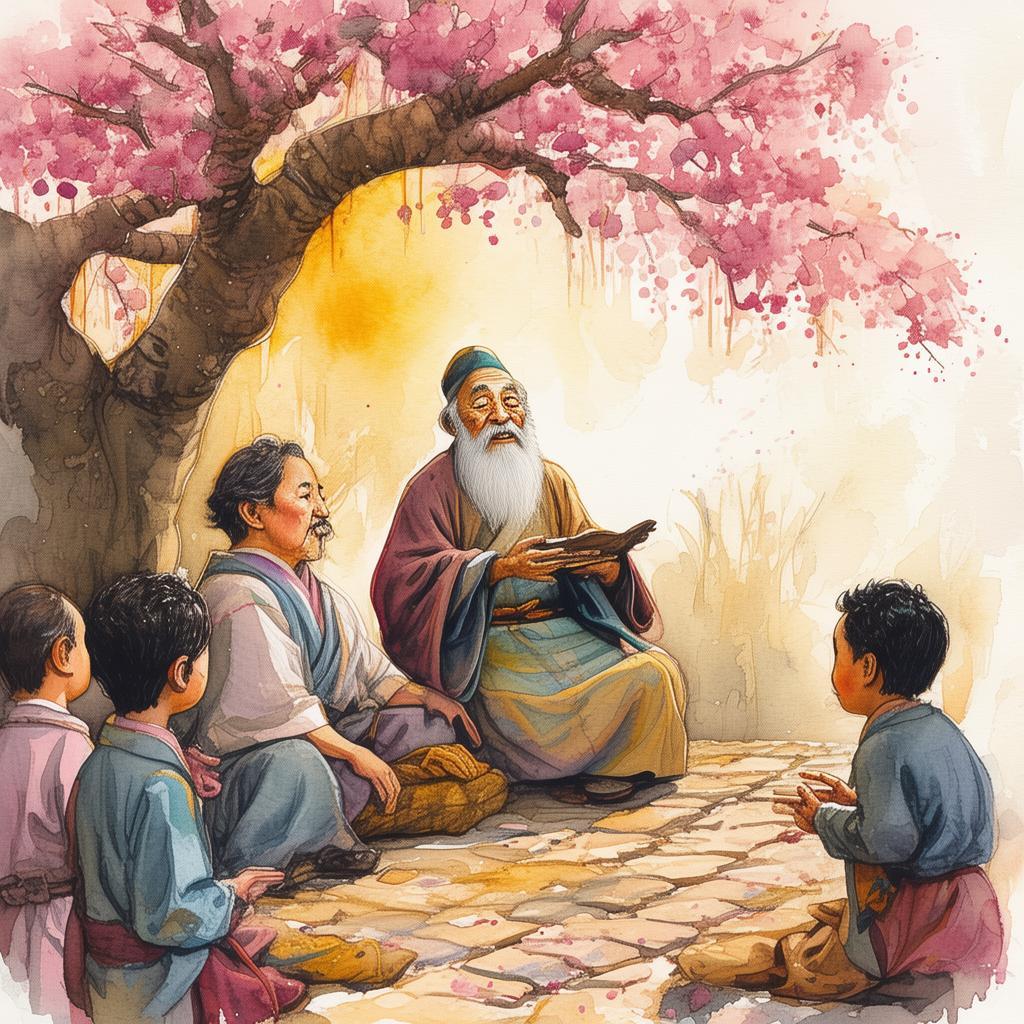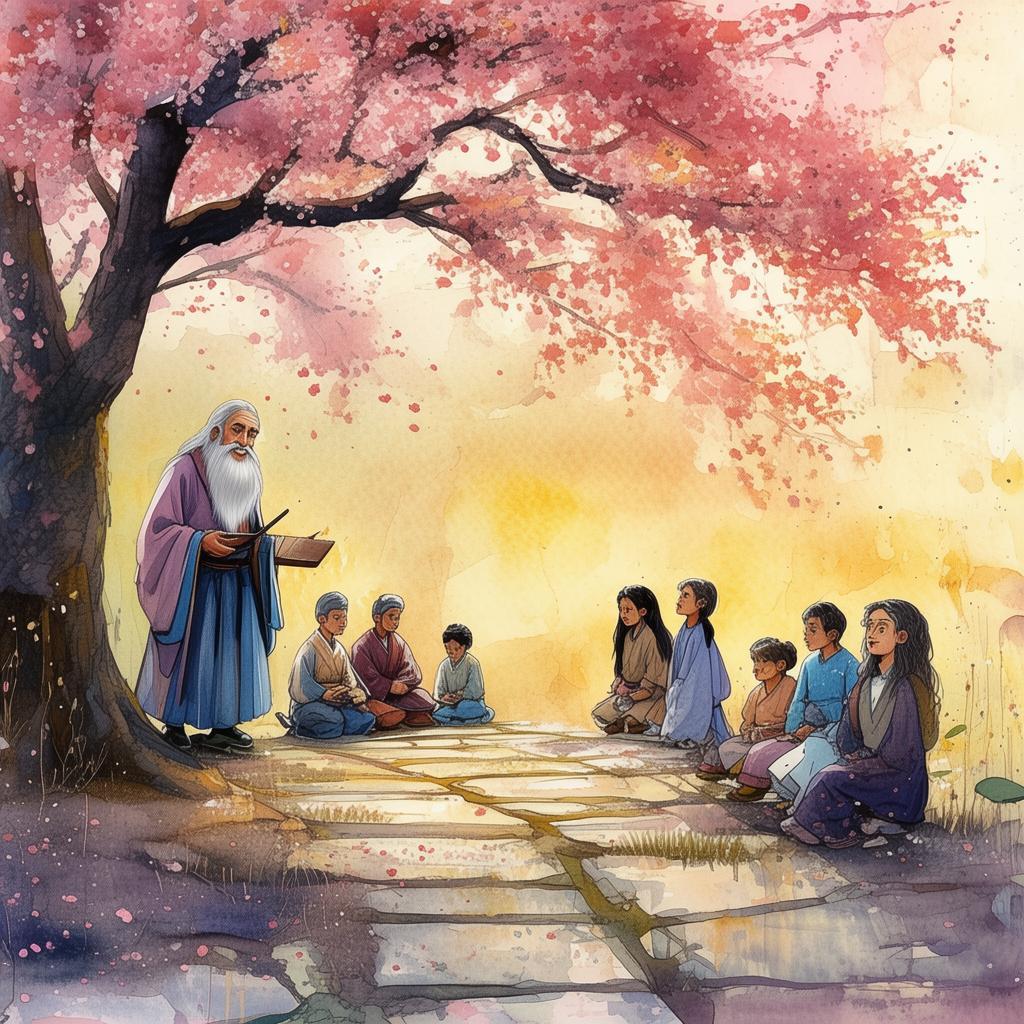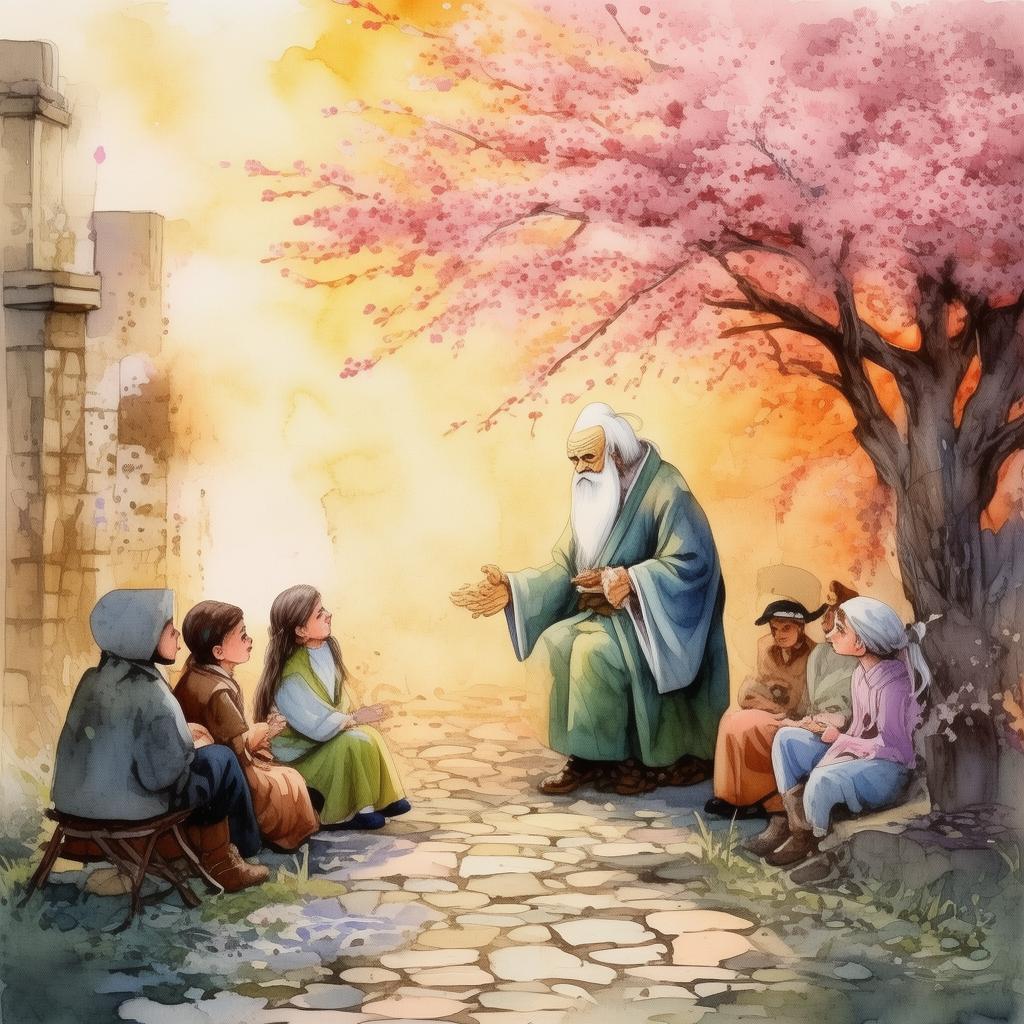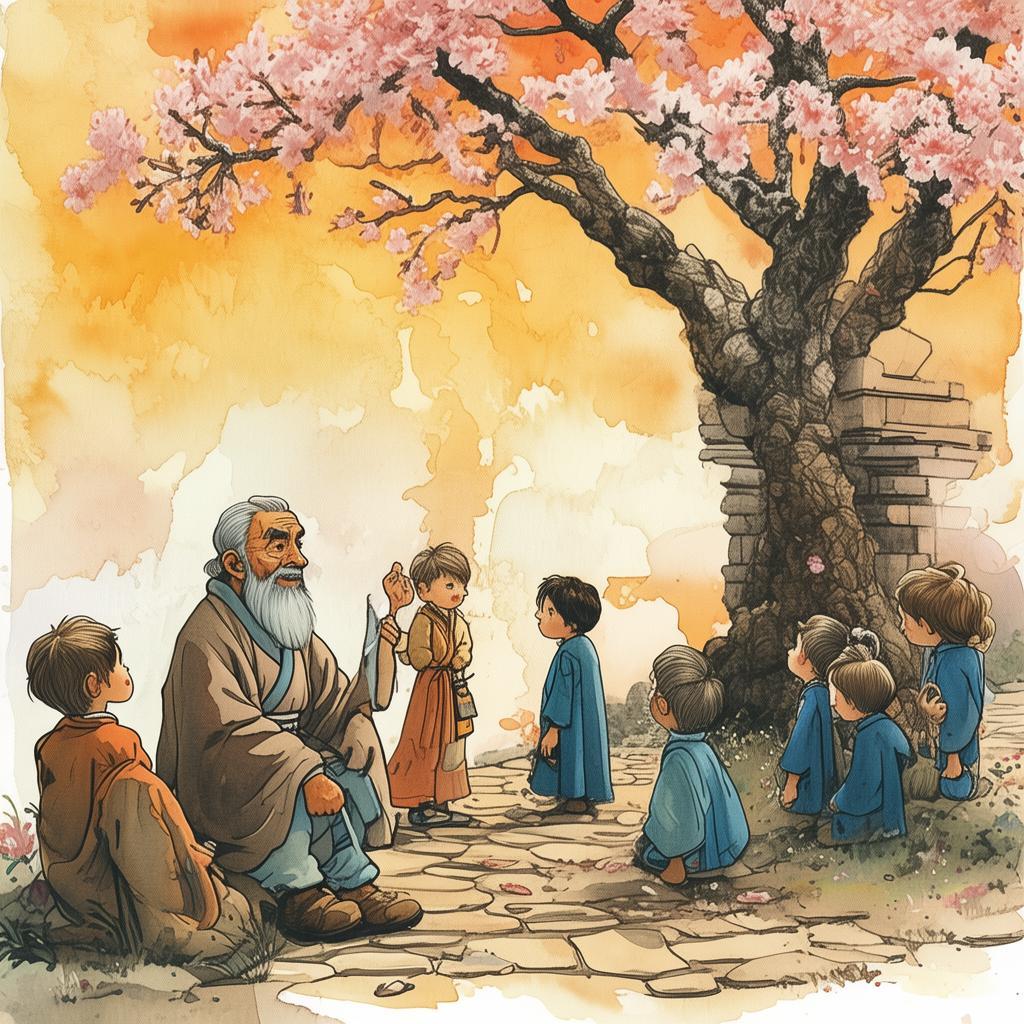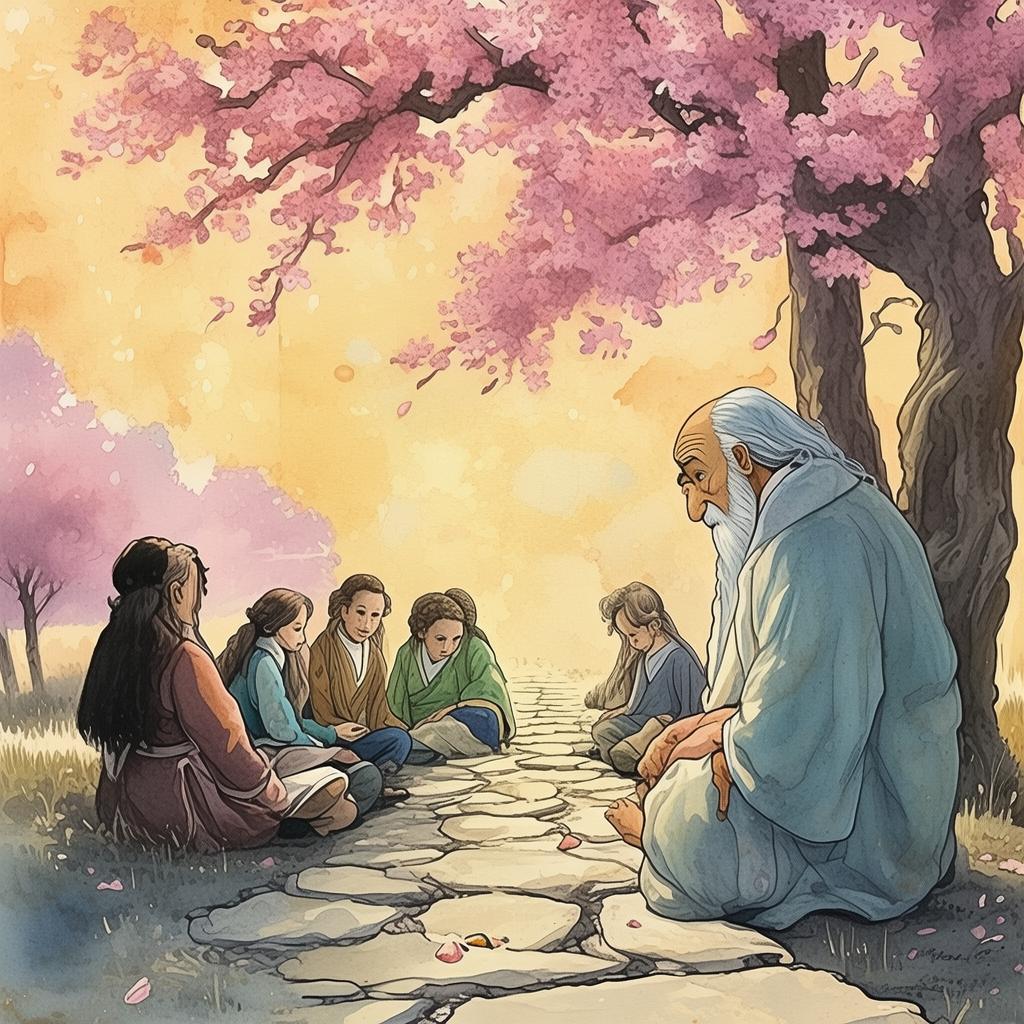The Forge of Solitude: The Blacksmith's Melancholic Mastery
In the heart of a quaint village nestled between rolling hills and whispering forests, there stood a solitary forge. It was here that the villagers would bring their broken tools and worn-out implements, seeking the expertise of the village blacksmith, Li Ming. Li Ming was not just any blacksmith; he was a master, his hands capable of transforming the simplest of metals into works of art that were as durable as they were beautiful.
The forge was a testament to his skill, a place where the red glow of the forge was a constant companion, and the clanging of hammer on anvil a symphony of creation. Yet, despite the acclaim and the respect he garnered, Li Ming was a man of solitude, his heart often heavy with a melancholy that seemed to permeate the very air around him.
The village was abuzz with tales of Li Ming's mastery. His ability to forge a sword that could slice through the thickest of shields, or a plowshare that could turn the hardest of soils, was legendary. Yet, to those who knew him well, there was a sense of something missing, a void that Li Ming's extraordinary skill could not fill.
One evening, as the sun dipped below the horizon, casting a golden hue over the forge, Li Ming sat alone, his gaze fixed on the flames that danced within the forge. The villagers often spoke of his melancholic mastery, a phrase that seemed to encapsulate the essence of his being. But what did it truly mean?
Li Ming's journey began long ago, when he was a young boy, watching his father work the forge. His father, a humble blacksmith, had passed on to him not just the art of metalworking but also the stories of ancient warriors, their legendary weapons, and the tales of their battles. It was these stories that fueled Li Ming's passion for the craft, and it was his father's words that echoed in his mind: "True mastery is not in the hands that wield the hammer, but in the heart that feels the metal."
As the years passed, Li Ming honed his skills, his heart growing heavier with each new creation. He could forge anything, from the simplest nails to the most intricate of jewelry, but something was always missing. The villagers would marvel at his creations, but Li Ming felt a void that no amount of praise could fill.
One day, a traveler came to the village, a man with a face etched with the lines of many journeys. He spoke of a distant land where the blacksmiths were revered as gods, their forges the hearths of creation, and their hearts the source of true power. Li Ming listened intently, his heart stirring with a newfound hope.
The traveler spoke of a ritual, an ancient rite of passage for blacksmiths, where they would forge a single piece that would embody their soul, their essence, their very being. It was said that only through this ritual could a blacksmith achieve true mastery, and only then could they find peace in their hearts.
Li Ming knew that he had to undertake this journey. He set aside his daily work, his forge silent save for the occasional rustle of leaves in the wind. He began to forge a sword, not just any sword, but one that would be a reflection of his soul, his essence, his very being.
Days turned into weeks, and weeks into months. Li Ming worked tirelessly, his hands calloused and his eyes weary. The sword took shape, a blade that seemed to hum with energy, a weapon that could cut through the very fabric of reality. But as the sword took form, so too did the melancholy in Li Ming's heart deepen.
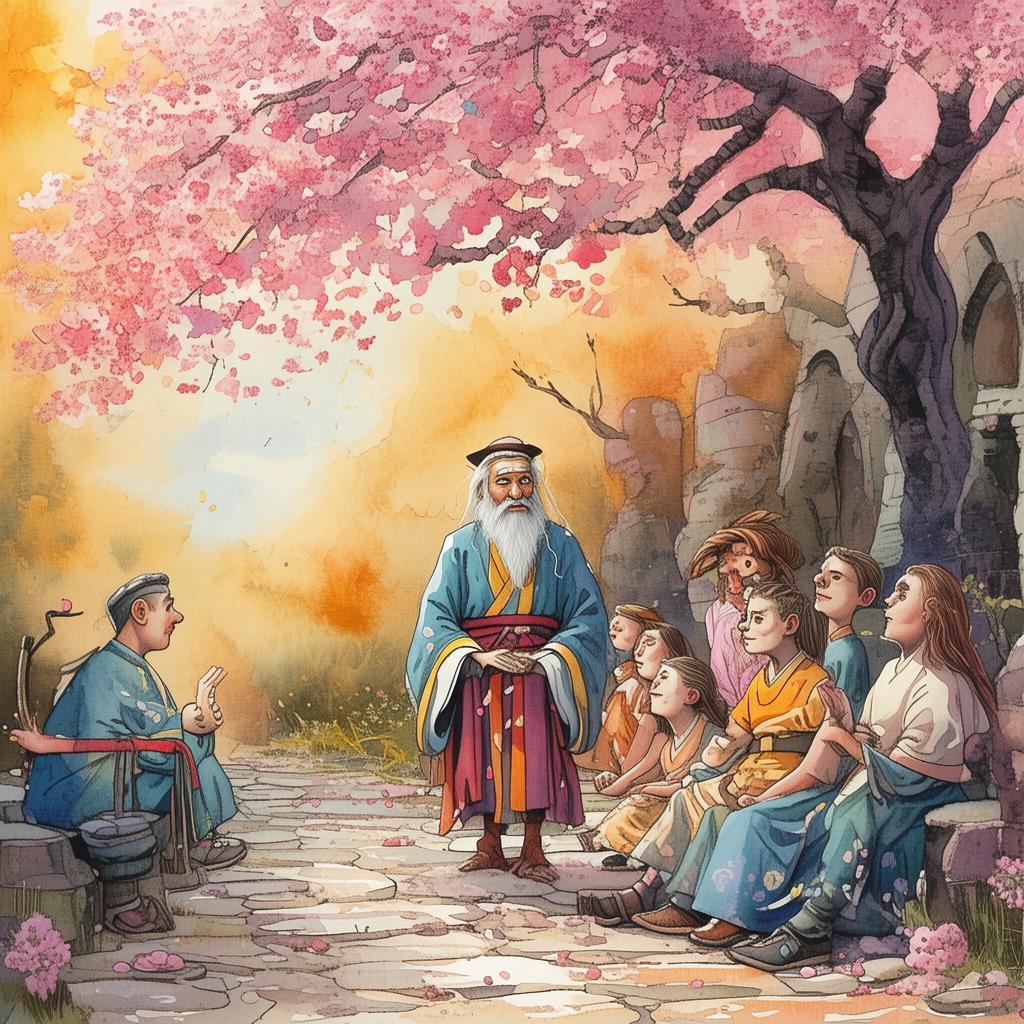
He realized that the ritual was not just about forging a sword; it was about confronting his own heartache, his own loneliness, and his own search for meaning. The sword was a mirror, reflecting not just his skill but his soul's struggle.
Finally, the day came when the sword was complete. It was a masterpiece, a blade that seemed to have a life of its own. Li Ming held it in his hands, feeling a surge of emotion that he had never experienced before. He knew that this was it, this was the moment of truth.
With a deep breath, Li Ming raised the sword, ready to perform the ritual. As he did, he felt a sense of peace wash over him, a realization dawning on him that he had already achieved mastery. It was not in the sword he held, but in the journey he had undertaken, in the heartache he had endured, and in the love he had found within himself.
The villagers gathered around, their eyes wide with wonder as Li Ming raised the sword high above his head. In that moment, the forge became a beacon of light, a hearth of creation that had not just forged a sword but had forged a man.
Li Ming lowered the sword, and the villagers erupted in cheers. For the first time, he felt a warmth in his heart, a warmth that came not from the forge but from the community that had embraced him. He realized that true mastery was not just in the hands that wield the hammer, but in the heart that feels the metal, and in the soul that finds its purpose.
And so, the blacksmith's melancholic mastery was no longer a source of pain but a source of inspiration, a testament to the power of the human spirit to overcome heartache and find solace in the pursuit of one's true calling.
✨ Original Statement ✨
All articles published on this website (including but not limited to text, images, videos, and other content) are original or authorized for reposting and are protected by relevant laws. Without the explicit written permission of this website, no individual or organization may copy, modify, repost, or use the content for commercial purposes.
If you need to quote or cooperate, please contact this site for authorization. We reserve the right to pursue legal responsibility for any unauthorized use.
Hereby declared.
